Hyundai i30 vs Suzuki S-Cross - Differences and prices compared
Compare performance (140 HP vs 110 HP), boot space and price (24000 £ vs 21800 £ ) at a glance. Find out which car is the better choice for you – Hyundai i30 or Suzuki S-Cross?
Costs and Efficiency:
Price and efficiency are often the first things buyers look at. Here it becomes clear which model has the long-term edge – whether at the pump, the plug, or in purchase price.
Suzuki S-Cross has a slightly advantage in terms of price – it starts at 21800 £ , while the Hyundai i30 costs 24000 £ . That’s a price difference of around 2229 £.
Fuel consumption also shows a difference: Suzuki S-Cross manages with 5.30 L and is therefore hardly perceptible more efficient than the Hyundai i30 with 5.70 L. The difference is about 0.40 L per 100 km.
Engine and Performance:
Power, torque and acceleration are the classic benchmarks for car enthusiasts – and here, some clear differences start to show.
When it comes to engine power, the Hyundai i30 has a distinct edge – offering 140 HP compared to 110 HP. That’s roughly 30 HP more horsepower.
In terms of top speed, the Hyundai i30 performs hardly perceptible better – reaching 197 km/h, while the Suzuki S-Cross tops out at 185 km/h. The difference is around 12 km/h.
There’s also a difference in torque: Hyundai i30 pulls hardly perceptible stronger with 253 Nm compared to 235 Nm. That’s about 18 Nm difference.
Space and Everyday Use:
Beyond pure performance, interior space and usability matter most in daily life. This is where you see which car is more practical and versatile.
Both vehicles offer seating for 5 people.
In curb weight, Suzuki S-Cross is minimal lighter – 1280 kg compared to 1291 kg. The difference is around 11 kg.
In terms of boot space, the Suzuki S-Cross offers barely noticeable more room – 430 L compared to 395 L. That’s a difference of about 35 L.
In maximum load capacity, the Hyundai i30 performs barely noticeable better – up to 1301 L, which is about 71 L more than the Suzuki S-Cross.
When it comes to payload, Hyundai i30 noticeable takes the win – 509 kg compared to 405 kg. That’s a difference of about 104 kg.
Who wins the race in the data check?
The Hyundai i30 stands out in the key areas in the objective data comparison.
This result only shows which model scores more points on paper – not which of the two cars feels right for you.
Costs and Consumption
View detailed analysis
Engine and Performance
View detailed analysis
Dimensions and Body
View detailed analysis
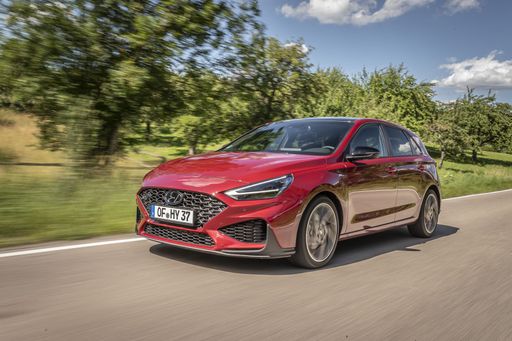
Hyundai i30
Hyundai i30
The Hyundai i30 proves that sensible can also be stylish, offering a confident driving character wrapped in neat, modern design. It serves up a roomy, well-equipped cabin and composed ride that make everyday motoring feel like a clever purchase rather than a compromise.
details
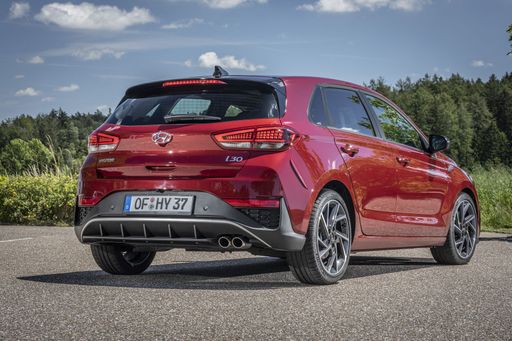
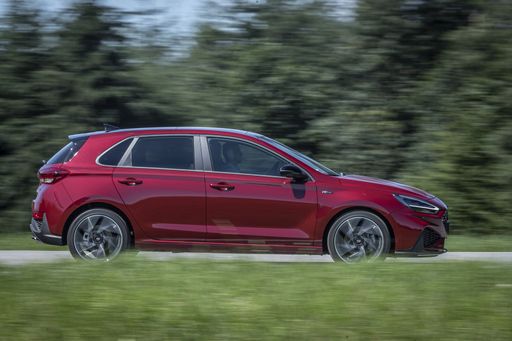
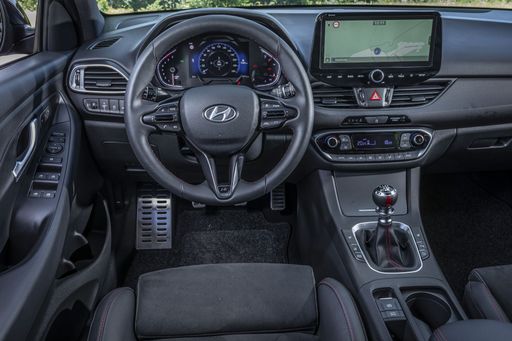
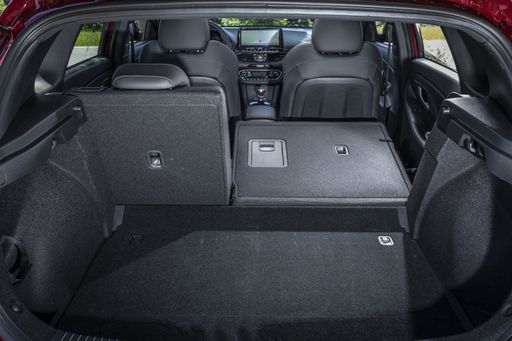
Suzuki S-Cross
The Suzuki S-Cross is a neatly packaged crossover that puts everyday practicality ahead of showy theatrics, offering a comfortable cabin and predictable handling that suit family life and weekend errands alike. It’s not a headline-grabber, but its sensible packaging, low-key charm and reputation for reliability make it a shrewd choice for buyers who prefer smart value over flash.
details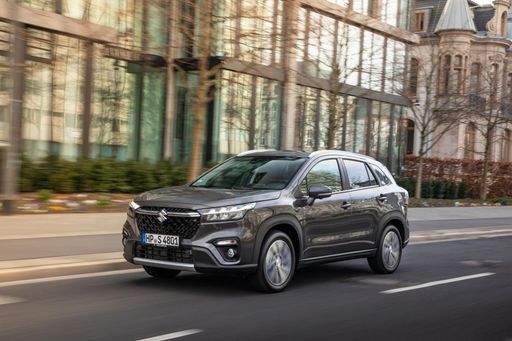
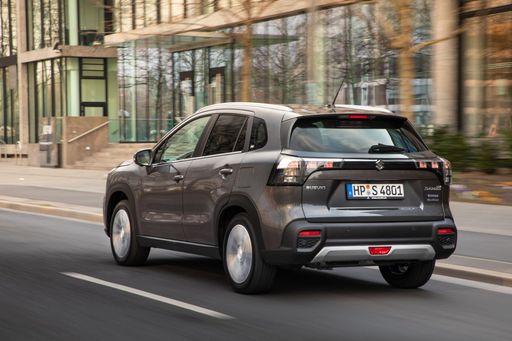
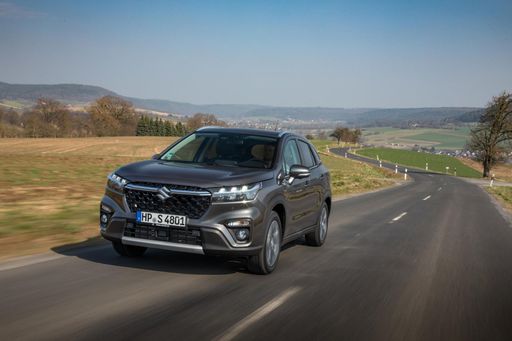
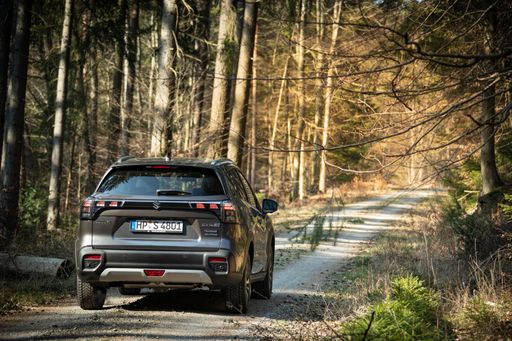
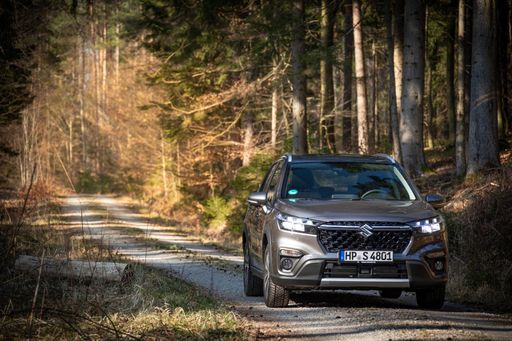
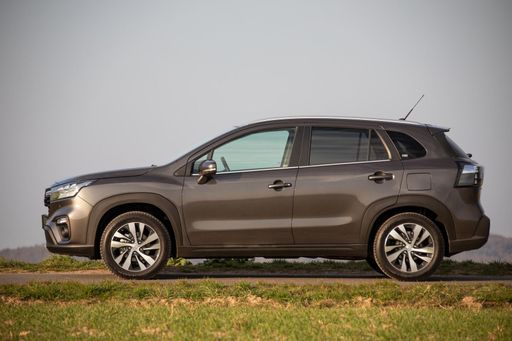
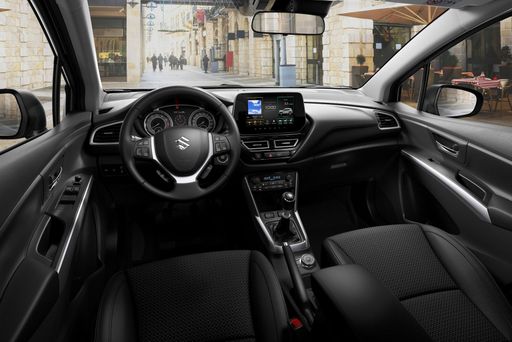
Costs and Consumption |
|
|---|---|
|
Price
24000 - 29300 £
|
Price
21800 - 34200 £
|
|
Consumption L/100km
5.7 - 6 L
|
Consumption L/100km
5.3 - 5.8 L
|
|
Consumption kWh/100km
-
|
Consumption kWh/100km
-
|
|
Electric Range
-
|
Electric Range
-
|
|
Battery Capacity
-
|
Battery Capacity
-
|
|
co2
130 - 136 g/km
|
co2
119 - 138 g/km
|
|
Fuel tank capacity
50 L
|
Fuel tank capacity
47 L
|
Dimensions and Body |
|
|---|---|
|
Body Type
Hatchback
|
Body Type
SUV
|
|
Seats
5
|
Seats
5
|
|
Doors
5
|
Doors
5
|
|
Curb weight
1291 - 1407 kg
|
Curb weight
1280 - 1385 kg
|
|
Trunk capacity
395 L
|
Trunk capacity
430 L
|
|
Length
4340 mm
|
Length
4305 mm
|
|
Width
1795 mm
|
Width
1785 mm
|
|
Height
1455 mm
|
Height
1580 mm
|
|
Max trunk capacity
1301 L
|
Max trunk capacity
1230 L
|
|
Payload
463 - 509 kg
|
Payload
395 - 405 kg
|
Engine and Performance |
|
|---|---|
|
Engine Type
Petrol, Petrol MHEV
|
Engine Type
Petrol MHEV
|
|
Transmission
Manuel, Automatic
|
Transmission
Manuel, Automatic
|
|
Transmission Detail
Manual Gearbox, Dual-Clutch Automatic
|
Transmission Detail
Manual Gearbox, Automatic Gearbox
|
|
Drive Type
Front-Wheel Drive
|
Drive Type
Front-Wheel Drive, All-Wheel Drive
|
|
Power HP
100 - 140 HP
|
Power HP
110 HP
|
|
Acceleration 0-100km/h
9.6 - 13.1 s
|
Acceleration 0-100km/h
-
|
|
Max Speed
178 - 197 km/h
|
Max Speed
180 - 185 km/h
|
|
Torque
172 - 253 Nm
|
Torque
235 Nm
|
|
Number of Cylinders
3 - 4
|
Number of Cylinders
4
|
|
Power kW
74 - 103 kW
|
Power kW
81 kW
|
|
Engine capacity
998 - 1482 cm3
|
Engine capacity
1373 cm3
|
General |
|
|---|---|
|
Model Year
2024
|
Model Year
2025
|
|
CO2 Efficiency Class
D, E
|
CO2 Efficiency Class
D, E
|
|
Brand
Hyundai
|
Brand
Suzuki
|
What drive types are available for the Hyundai i30?
Available configurations include Front-Wheel Drive.




